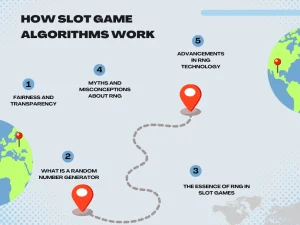Ever noticed how the ding-ding-ding of a slot machine pulls you in like a siren’s call? That’s no accident. Slot game soundtracks have evolved from simple mechanical clinks to full-blown cinematic scores—and they’re designed to keep you playing. Let’s dive into how sound shapes your experience and why casinos (and game developers) invest millions into perfecting it.
From Bells to Beats: A Brief History of Slot Sounds
In the early days, slot machines relied on physical noise—think clattering coins and ringing bells. The sound of a win was literal pocket change hitting a metal tray. But as technology advanced, so did the audio. Here’s how it unfolded:
- 1970s-80s: Electronic slots introduced basic chiptune melodies—repetitive but catchy.
- 1990s: Digitized sounds added depth, like faux coin drops and celebratory fanfares.
- 2000s-Present: Orchestral scores, licensed pop tracks, and adaptive audio that reacts to gameplay.
Fun fact: The iconic “wheel of fortune” spinning sound? It’s engineered to mimic the suspense of a real wheel—even though the outcome’s determined instantly.
Why Sound Matters More Than You Think
Soundtracks aren’t just background noise. They’re psychological triggers. Studies show that players spend 30% longer on games with dynamic audio. Here’s why:
1. The Illusion of Control
Ever felt like you “almost” won because the reels sounded close? Near-miss sounds (like two jackpot symbols landing) trick your brain into thinking you’re in control—even when you’re not.
2. Emotional Payoffs
Wins feel bigger with a burst of trumpets or a crowd cheering. Losses? Softened by soothing melodies. It’s like a rollercoaster—sound designers tweak the highs and lows to keep you riding.
3. Sensory Immersion
Modern slots use 3D audio and thematic music (e.g., Egyptian flutes for an adventure slot) to create a mini-world. You’re not just spinning reels—you’re on a treasure hunt.
The Science Behind the Sound
Neuromarketing studies reveal how slot sounds hijack your brain:
| Sound Feature | Psychological Effect |
| Fast-paced beats | Increases adrenaline, encourages faster bets |
| Ascending tones (e.g., rising pitch) | Creates anticipation, mimics a “build-up” |
| Low-frequency bass | Triggers primal excitement (think: movie trailers) |
And here’s the kicker: Even muted slots with subtler sounds retain players better than silent ones. The brain craves feedback.
Trends Shaping Modern Slot Soundtracks
Game developers aren’t just sticking to tradition—they’re innovating. A few 2024 trends:
- Personalized Audio: AI adjusts music based on your play style (aggressive vs. casual).
- Branded Soundtracks: Slots tied to movies or artists use familiar tunes for nostalgia.
- “Sound Skins”: Players can swap sound packs (e.g., jazz vs. EDM).
Honestly, some slots now rival Spotify playlists. The Gonzo’s Quest Megaways soundtrack? A legit banger.
The Dark Side: When Sound Crosses the Line
Not all audio tricks are player-friendly. Critics argue that:
- Losses disguised as wins (LDWs): A celebratory sound plays for tiny wins—masking net losses.
- Autoplay loops: Seamless music encourages endless spinning without breaks.
Regulators are catching on. The UK now requires slots to include reality checks (e.g., periodic silence or voice reminders).
Final Spin: Sound as Silent Salesman
Next time you play, listen closely. Those sounds aren’t random—they’re a carefully crafted audio casino, nudging you to stay, spin, and (hopefully) win. Whether it’s art or manipulation? Well, that’s in the ear of the beholder.




